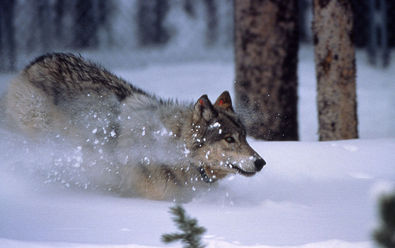 I wanted to write more about intuitive movement, but I wasn't sure what to say. Apart from 'do what you love', how do you instruct someone to move intuitively? How do you encourage people to move, to exercise or train, in a way they find enjoyable and satisfying? How do you know where to start, if you don't like to exercise? I have known so many people who are resistant to training because they feel trapped, constrained by the feeling that they have to do this thing, this thing that they hate. That they must spend 30 minutes on the treadmill, on the bike, or 'doing' weights, and for what? Improved health and vitality? There are so many different programs out there, and it's crap. Which is to say it's all good, if you like it, but if you don't - it's a complete waste of your time to train. You won't get a thing out of it, except for more negative associations. And where will that leave us?
9 Comments
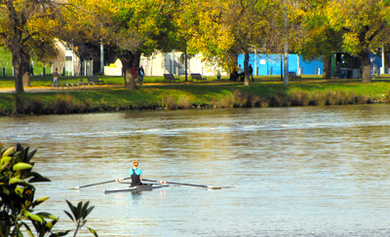 Training is about development. It’s not about simulating the experience of competition, it’s not about testing, it’s not about being the best around, nothin’s ever gonna keep you down – nor is it about rehab, consistency, or even the acquisition of skills. It may include many of these things, but it is limited to none of them. To take a broad view, if you’re not progressing, your training is not serving you. Of course, if you read my last post, and you really are simply into having fun, improving your health, and training intuitively, what follows may be kind of irrelevant. But if you are looking to progress athletically, read on, dear reader... It’s a funny thing – when we think of training in terms of education or occupationally specific knowledge and skills, we think of an end result where we have learned something – where we possess more skills and knowledge, and the ability to apply these in a practical context.  A trainer friend of mine said he's running like a Kenyan. This particular training method, it seems, comes down to running for exactly as long as you want to run, not timing it, laying down and counting to sixty - if you're still awake, running again, and if you nap, you nap. He said they're so in-tune with their bodies, this is how they run. What I find odd about it all is the idea that training intuitively is an advanced method. Shouldn't it be the best method for all of us? Or is it only for people who have already developed the will and desire to work hard? Or does that will to work hard numb us, does that actually bring us out-of-tune with our bodies? I've been working on a post about the will and desire to work hard. But I'm not always sure it's good - or at any rate - it's also good to work gently. I think I'm grappling with the notion of contrived vs genuine training. And of course, you develop what you train - so the more you train, the more you develop the ability to train - and the more you train poorly the more you develop the ability to train poorly. Which has nothing to do with intensity, or working hard, or not. 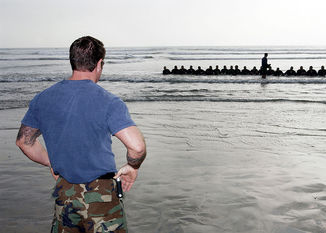 _ I don’t train because I enjoy being abused or emasculated. In fact, I don’t enjoy being abused or ridiculed at all, not even ‘in the name of progress’. Maybe this is why I generally train by myself these days. It’s a strange and sad state, when our normal expectation of the personal training experience is to berate or be berated. Any moron can tell someone to do it harder, and just because you’re Drillseargent McYellface doesn’t make you good at progression or athletic advancement. In fact, it probably makes you worse. If you’re actually in the army, and you need to be combat-ready – there are different processes they take you through. You need to learn about managing stress in a whole different way. Bootcamps aren’t about getting you fit – it’s the army – they assume you’re already fit. Bootcamps are about team building, learning to trust and rely on the other people who will keep you alive when death is on the cards. The modern civilian bootcamp is an abomination. 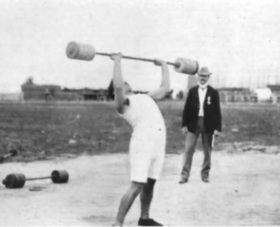 _ It’s mostly social. And there’s a lot of misinformation. Or people are doing it for the wrong reasons – they think it’s going to make something happen that might never happen – or maybe they’re compensating for something (I raise my hand here – hello!). How does calling someone soft help them to get strong? By exploiting them, rather than encouraging them. By shaming and manipulating them, rather than inspiring them. Is that method of motivation still going to be working for you after three years of lifting? I hope not. I hope you’d be better at standing up for yourself by then. If a guy posts a video on youtube of his max effort deadlift, someone’s going to call him a pussy or a fag. Maybe because he isn’t lifting enough. Or maybe he’s lifting too much, and the critic feels threatened. Or his technique’s all wrong, and the bullying is excused with a phrase like just sayin’, as if nothing untoward has happened and being an asshole is okay because of free speech and blah-de-blah. 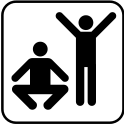 We know that walking for as little as ten minutes is good for your health, yet any personal trainer will tell you it isn’t enough. For what? Weight-loss. What is enough? And how much pressure is supposed to be helpful, anyway? If we can let go of our own hypocrisy, that will enable us to do things that are good for us, even though they won’t make us thin. Anyone who says they have a fool-proof, guaranteed system is lying to you. If such a system actually existed, would anyone be fat? Hell no. If it’s a secret method, that means it’s statistically insignificant. So is that ‘one weird tip’ good for anything other than lightening your wallet?  _ When I was a child, we were at the beach one time – not in Melbourne, it was somewhere coastal. I walked along the sand; it was firm underfoot – wet from receding waves, compact. I had a strong impulse to run, and so I ran. I would have expected to fatigue, but the energy I had fed off itself, and I ran faster and faster. It felt as if I could almost fly, if only I could run just a little bit quicker. My imagination inspired me. My weight seemed to disappear from the ground, and it felt like a long distance, and a short one, all at the same time. It was a pure and simple joy. I had known the laboured boredom of jogging, I’d known from school both the despondency of failing to win a race, and the self-conscious pleasure with a smattering of guilt that came from success in competition. This memory exists before I had experienced the shame of being a person who believes they should run. I couldn’t articulate it at the time, but this was my earliest memory of running as a physical expression of freedom and joy. 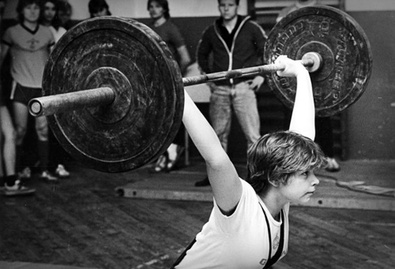 _ The gym is a place for experimentation, play, and physical expression. It is not a place for punishment, shame or degradation. In my imaginary utopian society, the gym is a place where people are free to express themselves physically, without overbearing structures, pressures to conform, or any kind of humiliation. Trying to ‘work off’ the cream tart you ate three days ago is futile. It’s a socially sanctioned form of self-flagellation, and will ultimately lead you to self-loathing and feeling like a failure. Your health and the shape of your body are not determined by a primary-level mathematical equation comprised of a whole bunch of pluses and minuses. Your shape is determined by your hormonal environment, your genes, your sleep and stress levels, and a billion other things that cannot be calculated, let alone controlled. Whatever you ate, and however you judge it, it is done – it’s assimilated, it’s metabolised, and there isn’t this special pocket of fat that’s reserved for donuts or chips, that you can dip into for energy when you’re exercising or skipping a meal later on. It doesn’t matter how much you ate before, in the future, you will need to eat again. 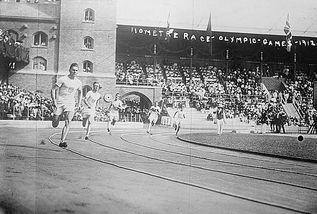 _ I like to talk a bit about athletic development, but it’s not always obvious what that means. The way you compete at your sport and the way you develop yourself as an athlete are quite different. When you see someone sprint at the Olympics – that’s not what their training consists of. There is sprinting, yes, there’ll be other things too, but it’s not a matter of just busting your ass as hard in training as you do in competition. The process of development is different from the testing method. The way you get better at something is not just by doing that thing at maximal intensity, all the damn time. That’ll get you some part of the way, but it’ll also get you fatigued, miserable and burnt out. Developing your athleticism means paying attention to what helps you to progress. Sometimes that’s going to be working at insanely high levels of intensity, but usually it’s not. The science of strength training is interesting. Depends on who you listen to, of course, because we (trainers) do like to talk. Something I keep coming back to – I forget the exact numbers, so bear with me please – is the difference between intensiveness (your perceived degree of effort) and intensity (as a percentage of your one rep max).  Never, never apologise for being hungry. There is not a single thing wrong with it. We have gross misconceptions when it comes to cravings – it’s the job of cravings to keep us from malnourishment, starvation and death, when we ourselves fail to do so. But food and threats are used to shame and punish, and so we are loathe to ask for what we need even from ourselves, or we find we are constantly justifying our choices to the people around us. If you want to be blessedly craving-free, or at least better equipped to withstand your fierce and untamed desires, you absolutely have to meet them half-way. If you think you can just be tough and muscle it out, you’re setting yourself up for failure further down the track. The more you suck it up, the further into metabolic apocalypse and malnourishment you push – there’s a whole ton of truth to the saying the higher you climb, the farther you have to fall. We all think we won’t fall. But we do. |
